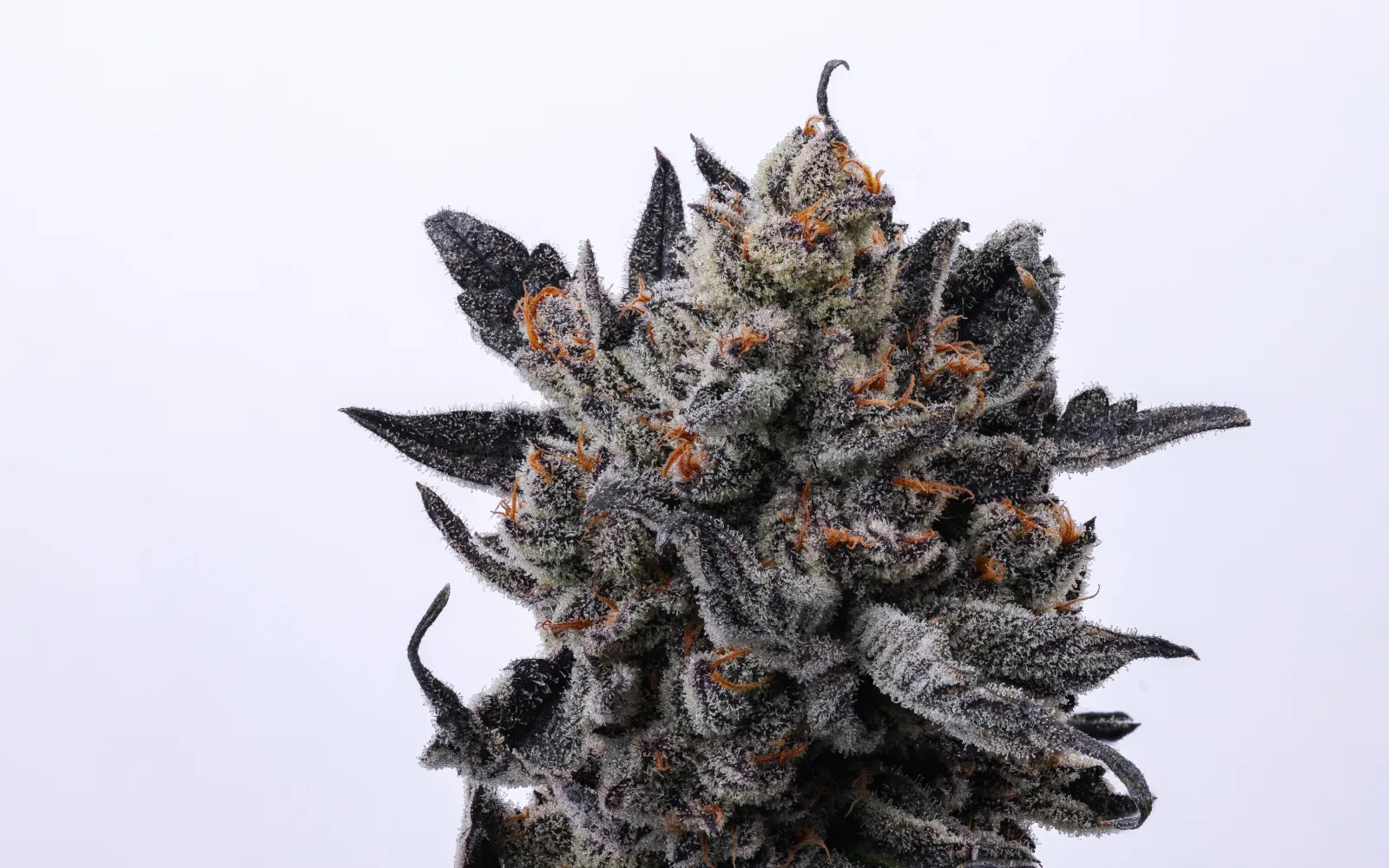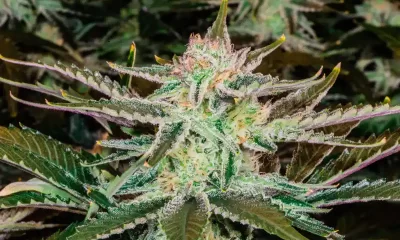Business
Missouri Regulators Recall Thousands of Cannabis Products

Regulators in Missouri on Monday issued a notice to recall more than 60,000 cannabis products in the state that were insufficiently processed before hitting the market.
The Missouri Division of Cannabis Regulation said that it is “issuing a patient and consumer communication to alert patients and consumers about a mandatory product recall” affecting “manufactured products sold to dispensaries and manufacturers by infused product manufacturer, Delta Extraction, LLC, MAN000022.”
According to the agency, the “recalled products were not compliantly tracked in the statewide track and trace system (METRC) in order for [Division of Cannabis Regulation] to verify the products came from marijuana grown in Missouri or that the product passed required testing prior to being sold at dispensaries.”
Monday’s notice said that no “adverse reactions for this product have been reported to the [Division of Cannabis Regulation] at this time,” but the agency says that all patients and consumers “who have purchased the recalled product should discontinue use.”
“All unused product(s) should be discarded or returned to the dispensary where purchased. Returned products will not count toward a patient’s purchase limit. For more information on returns, please contact the dispensary where the product was purchased,” the notice said.
A complete list of the recalled cannabis products, totaling 62,800, can be found on the Missouri Department of Health and Human Services’ website.
Medical cannabis sales began in Missouri in October of 2020, while adult-use weed sales launched in February.
In May, the state reported that cumulative cannabis sales for both medical and adult-use eclipsed $1 billion.
“Missouri’s newest billion-dollar industry is experiencing significant job growth, providing great products and services to Missourians, and becoming an integral part to the local economy throughout the state,” Andrew Mullins, the executive director of the Missouri Cannabis Trade Association, said after the figures were reported. “Missouri has avoided so many of the early hiccups that other states have experienced transitioning from a medical cannabis program focusing on quality, affordability, access and selection. Missouri’s cannabis program could not have gotten off to a better start. A sincere thank you to all the patients, customers, and small business owners that helped Missouri reach this impressive milestone.”
In the first month of Missouri’s recreational adult-use cannabis market, sales topped $100 million.
Mullins noted at the time that the figure was “more than double what Illinois did in a state with twice the population.”
“So it really shows the interest and excitement for the new adult-use industry in Missouri,” Mullins said earlier this year.
“Canna-tourism folks that may decide to come to Missouri to access and utilize cannabis,” he added. “That seems to also be having an impact on the amount of sales that Missouri’s experiencing.”
Still, product recalls are a fact of any legal cannabis market –– and a reminder of the importance of sound and thorough regulation.
Regulators in Colorado issued a recall last year after detecting “potentially unsafe levels of total yeast and mold and aspergillus on Medical Marijuana flower (bud/shake/trim).”
The Colorado Department of Revenue (DOR) and the Colorado Department of Public Health and Environment issued an advisory in the fall saying they “deem it a threat to public health and safety when marijuana is found to have levels of total yeast and mold and aspergillus above the acceptable limits established.”
“[The Department of Revenue] has identified Harvest Batches of Medical Marijuana produced by [The Living Rose] that were not submitted for testing…Harvest Batches of Medical Marijuana produced by [The Living Rose] were required to be tested by the [Department of Revenue] and were found to contain total yeast and mold and aspergillus above the acceptable amounts,” the advisory said.
Source: https://hightimes.com/news/missouri-regulators-recall-thousands-of-cannabis-products/
Business
New Mexico cannabis operator fined, loses license for alleged BioTrack fraud

New Mexico regulators fined a cannabis operator nearly $300,000 and revoked its license after the company allegedly created fake reports in the state’s traceability software.
The New Mexico Cannabis Control Division (CCD) accused marijuana manufacturer and retailer Golden Roots of 11 violations, according to Albuquerque Business First.
Golden Roots operates the The Cannabis Revolution Dispensary.
The majority of the violations are related to the Albuquerque company’s improper use of BioTrack, which has been New Mexico’s track-and-trace vendor since 2015.
The CCD alleges Golden Roots reported marijuana production only two months after it had received its vertically integrated license, according to Albuquerque Business First.
Because cannabis takes longer than two months to be cultivated, the CCD was suspicious of the report.
After inspecting the company’s premises, the CCD alleged Golden Roots reported cultivation, transportation and sales in BioTrack but wasn’t able to provide officers who inspected the site evidence that the operator was cultivating cannabis.
In April, the CCD revoked Golden Roots’ license and issued a $10,000 fine, according to the news outlet.
The company requested a hearing, which the regulator scheduled for Sept. 1.
At the hearing, the CCD testified that the company’s dried-cannabis weights in BioTrack were suspicious because they didn’t seem to accurately reflect how much weight marijuana loses as it dries.
Company employees also poorly accounted for why they were making adjustments in the system of up to 24 pounds of cannabis, making comments such as “bad” or “mistake” in the software, Albuquerque Business First reported.
Golden Roots was fined $298,972.05 – the amount regulators allege the company made selling products that weren’t properly accounted for in BioTrack.
The CCD has been cracking down on cannabis operators accused of selling products procured from out-of-state or not grown legally:
- Regulators alleged in August that Albuquerque dispensary Sawmill Sweet Leaf sold out-of-state products and didn’t have a license for extraction.
- Paradise Exotics Distro lost its license in July after regulators alleged the company sold products made in California.
Golden Roots was the first alleged rulebreaker in New Mexico to be asked to pay a large fine.
Source: https://mjbizdaily.com/new-mexico-cannabis-operator-fined-loses-license-for-alleged-biotrack-fraud/
Business
Marijuana companies suing US attorney general in federal prohibition challenge

Four marijuana companies, including a multistate operator, have filed a lawsuit against U.S. Attorney General Merrick Garland in which they allege the federal MJ prohibition under the Controlled Substances Act is no longer constitutional.
According to the complaint, filed Thursday in U.S. District Court in Massachusetts, retailer Canna Provisions, Treevit delivery service CEO Gyasi Sellers, cultivator Wiseacre Farm and MSO Verano Holdings Corp. are all harmed by “the federal government’s unconstitutional ban on cultivating, manufacturing, distributing, or possessing intrastate marijuana.”
Verano is headquartered in Chicago but has operations in Massachusetts; the other three operators are based in Massachusetts.
The lawsuit seeks a ruling that the “Controlled Substances Act is unconstitutional as applied to the intrastate cultivation, manufacture, possession, and distribution of marijuana pursuant to state law.”
The companies want the case to go before the U.S. Supreme Court.
They hired prominent law firm Boies Schiller Flexner to represent them.
The New York-based firm’s principal is David Boies, whose former clients include Microsoft, former presidential candidate Al Gore and Elizabeth Holmes’ disgraced startup Theranos.
Similar challenges to the federal Controlled Substances Act (CSA) have failed.
One such challenge led to a landmark Supreme Court decision in 2005.
In Gonzalez vs. Raich, the highest court in the United States ruled in a 6-3 decision that the commerce clause of the U.S. Constitution gave Congress the power to outlaw marijuana federally, even though state laws allow the cultivation and sale of cannabis.
In the 18 years since that ruling, 23 states and the District of Columbia have legalized adult-use marijuana and the federal government has allowed a multibillion-dollar cannabis industry to thrive.
Since both Congress and the U.S. Department of Justice, currently headed by Garland, have declined to intervene in state-licensed marijuana markets, the key facts that led to the Supreme Court’s 2005 ruling “no longer apply,” Boies said in a statement Thursday.
“The Supreme Court has since made clear that the federal government lacks the authority to regulate purely intrastate commerce,” Boies said.
“Moreover, the facts on which those precedents are based are no longer true.”
Verano President Darren Weiss said in a statement the company is “prepared to bring this case all the way to the Supreme Court in order to align federal law with how Congress has acted for years.”
While the Biden administration’s push to reschedule marijuana would help solve marijuana operators’ federal tax woes, neither rescheduling nor modest Congressional reforms such as the SAFER Banking Act “solve the fundamental issue,” Weiss added.
“The application of the CSA to lawful state-run cannabis business is an unconstitutional overreach on state sovereignty that has led to decades of harm, failed businesses, lost jobs, and unsafe working conditions.”
Business
Alabama to make another attempt Dec. 1 to award medical cannabis licenses

Alabama regulators are targeting Dec. 1 to award the first batch of medical cannabis business licenses after the agency’s first two attempts were scrapped because of scoring errors and litigation.
The first licenses will be awarded to individual cultivators, delivery providers, processors, dispensaries and state testing labs, according to the Alabama Medical Cannabis Commission (AMCC).
Then, on Dec. 12, the AMCC will award licenses for vertically integrated operations, a designation set primarily for multistate operators.
Licenses are expected to be handed out 28 days after they have been awarded, so MMJ production could begin in early January, according to the Alabama Daily News.
That means MMJ products could be available for patients around early March, an AMCC spokesperson told the media outlet.
Regulators initially awarded 21 business licenses in June, only to void them after applicants alleged inconsistencies with how the applications were scored.
Then, in August, the state awarded 24 different licenses – 19 went to June recipients – only to reverse themselves again and scratch those licenses after spurned applicants filed lawsuits.
A state judge dismissed a lawsuit filed by Chicago-based MSO Verano Holdings Corp., but another lawsuit is pending.
Source: https://mjbizdaily.com/alabama-plans-to-award-medical-cannabis-licenses-dec-1/
-

 Business2 years ago
Business2 years agoPot Odor Does Not Justify Probable Cause for Vehicle Searches, Minnesota Court Affirms
-

 Business2 years ago
Business2 years agoNew Mexico cannabis operator fined, loses license for alleged BioTrack fraud
-

 Business2 years ago
Business2 years agoAlabama to make another attempt Dec. 1 to award medical cannabis licenses
-

 Business2 years ago
Business2 years agoWashington State Pays Out $9.4 Million in Refunds Relating to Drug Convictions
-

 Business2 years ago
Business2 years agoMarijuana companies suing US attorney general in federal prohibition challenge
-

 Business2 years ago
Business2 years agoLegal Marijuana Handed A Nothing Burger From NY State
-

 Business2 years ago
Business2 years agoCan Cannabis Help Seasonal Depression
-

 Blogs2 years ago
Blogs2 years agoCannabis Art Is Flourishing On Etsy













